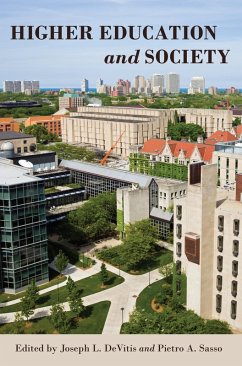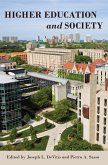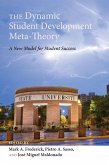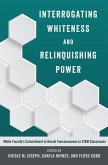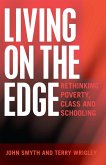Higher education and society are becoming increasingly intertwined. Both act as a transmitter of culture, yet many colleges and universities also ideally seek to create a more perfectible society and more enlightened, engaged citizens. When the connections between social structures and post-secondary education are closely entangled, the university's aims can take on a contentious struggle for identity in a vexing web of competing external interests - especially in light of scarce economic resources, corporate pressures, technological questions, and globalizing trends. Higher Education and Society weighs the urgent question of how society and higher education influence each other. How the latter responds to that unsettled issue may well determine whether colleges and universities chart a more self-reflective path or one of rising deference to societal contingencies. This book is essential for all those who study and work in today's colleges - and for all those who seek a better education for their children, the nation, and the world. It is especially recommended for courses in higher education and society, contemporary issues in higher education, the philosophy of higher education, academic issues in higher education, leadership in higher education, and globalization and higher education. The book is also useful for the preparation of faculty development programs in colleges and universities.
Dieser Download kann aus rechtlichen Gründen nur mit Rechnungsadresse in A, D ausgeliefert werden.
«As colleges and universities ratchet up their corporate enterprises, we must ask what kind of impact their changing foci are having. How have they been influenced by the changes around them and, in turn, how have they dealt with those changes? DeVitis and Sasso have brought together a compelling collection of essays that push us to answer these questions.»
(Marybeth Gasman, Professor of Higher Education and Director,
Center for Minority Serving Institutions, University of Pennsylvania)
«Higher education has often been discussed in such terms as 'isolation,' 'ivory tower,' and 'silo.' What may have been a common description, or criticism, is no longer accurate. What college students have referred to as the 'real world' has influenced higher education in complicated ways with complicated consequences. Higher education's role in its transformation, and its influence on the 'real world,' is indeed messy. DeVitis and Sasso's volume turns a critical gaze on this messy relationship.»
(Stephanie J. Waterman, Associate Professor of Leadership, Adult and Higher Education, Ontario Institute for Studies in Education, University of Toronto)
(Marybeth Gasman, Professor of Higher Education and Director,
Center for Minority Serving Institutions, University of Pennsylvania)
«Higher education has often been discussed in such terms as 'isolation,' 'ivory tower,' and 'silo.' What may have been a common description, or criticism, is no longer accurate. What college students have referred to as the 'real world' has influenced higher education in complicated ways with complicated consequences. Higher education's role in its transformation, and its influence on the 'real world,' is indeed messy. DeVitis and Sasso's volume turns a critical gaze on this messy relationship.»
(Stephanie J. Waterman, Associate Professor of Leadership, Adult and Higher Education, Ontario Institute for Studies in Education, University of Toronto)

